What Your Gadgets Really Say About You
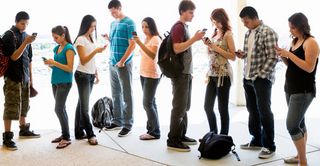
People judge each other on what they drive, what they wear and where they live, so it's not a surprise that people may also judge each other on what electronics they whip out to use in public.
"Identity is interwoven into those kinds of choices," said Coye Cheshire, associate professor of sociology at the Berkeley School of Information.
The iPhone seems to carry cachet for many users, said Cheshire, and Apple's devices are often seen as the "highest-end consumer products" in the gadget world. The iPhone is also for those who don't have time to "tinker in menus." In essence, an iPhone doesn't say a person isn’t tech-savvy, but rather advertises that, "I have far more important things to do with my time."
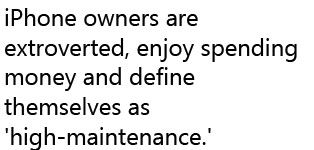
There also seems to be a well-formed iPhone or iOS hipster identity, at least according to Hunch, a taste-predictor engine that uses Internet behavior research to predict what different people will like. Those with Apple products made up 32 percent of 15,818 users surveyed in 2011; they seemed to skew older than 35, and were more likely to be female and have a graduate degree than people using other products. Did we mention these users are also more likely to be liberal and make more than $200,000 a year? They're extroverted, enjoy spending money and define themselves as "high-maintenance."
"The iPhone became a status symbol because people equated smartphone with iPhone," said Roslyn Layton, a Ph.D. candidate in Internet economics at the University of Copenhagen. "It actually helped the sales of many kinds of smartphones, because people finally understood what a smartphone meant."
MORE: Top 10 Smartphones Available Now
Stay in the know with Laptop Mag
Get our in-depth reviews, helpful tips, great deals, and the biggest news stories delivered to your inbox.
Android users, on the other hand, seem to skew more rural (86 percent more likely than iPhone users to live in a rural area), are more likely to vote conservatively (20 percent more than iPhone users) and are 10 percent more likely to be male. Google's Admob agreed with that observation in 2010, noting that men made up 73 percent of Android users. People using Google phones are also more likely than iPhone users to have never left their home country (71 percent) and to use Yahoo email (50 percent). Interestingly, users of Google's OS are proud pet owners (12 percent more likely than iPhone owners) and tend to like Comedy Central.
Android users may be making a statement against the iPhone. Most people have reference groups, or people they hang out with or aspire to be, said Brent McFerran, a marketing professor at the University of Michigan's Ross School of Business. "People either want to be like that group or disassociate themselves from another group by doing the opposite," he said.
Blackberry Users, Windows Phone Fans
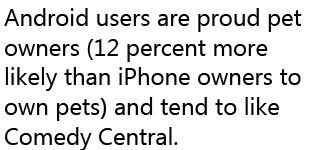
Some may make an even bigger statement by using other smartphone operating systems. The Hunch survey seemed to relegate BlackBerry and the Windows Phone to a footnote, with BlackBerry users labeled as introverted city folk (equally likely to be male or female) who like to travel; it summed up Windows Phone users as politically moderate, suburban soccer moms.
But to be honest, those using the Windows Phone may be considered singular or daring, but those using a last-generation BlackBerry are just as likely to be called dinosaurs. That huge keyboard? Few apps to choose from?
NBC New York reported in December of 2011 that robbers targeting the Columbia University campus were handing back other smartphones because they only wanted iPhones, particularly for their high resale value. "I wonder what (the BlackBerry owners) did and thought afterwards," Cheshire said about the theft. BlackBerry certainly hopes its new Z10 and Q10 phones will be more valued by shoppers and thieves alike, thanks to a sleek new interface. However, while the new BlackBerry 10 software powers phones, BlackBerry hasn’t said whether it will be releasing a tablet.
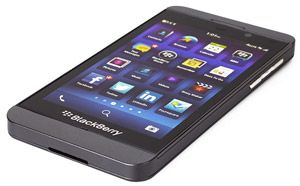
These debates are more important now, because the battle isn't for individual devices anymore, but for ecosystems, said Charles S. Golvin, with Forrester Research. "Amazon, Apple, Google and Microsoft all aim to translate customers' investments — of money, information, personalization and social connections — into a gravitational field of loyalty so powerful that few customers will ever attain escape velocity," he wrote. Apple and Samsung have the most pull right now in the mobile world.
Mac vs. PC Users
The Mac is another Apple product with a controversial identity. According to an April 2011 survey by Hunch, PC users tend to be suburban and rural, while Mac users are far more likely to be overeducated, vegetarian urbanites. PC users are more like to stop by the meme site I Can Haz Cheezburger, while Mac users want a peek at the Huffington Post.
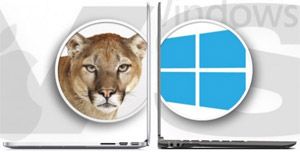
But Hunch also reports that Mac users consider themselves early adopters, while PC users are "later adopters." The Apple owners are also more likely to be ages 18 to 34, compared to the PC users' 35-to-49 demographic. More than half of Hunch's 388,315 respondents owned PCs, representing a much bigger chunk than the Mac users' 25 percent. Also, 23 percent of those surveyed chose not to enter the Mac versus PC debate and declined either label. Who can blame them for not claiming either the neoliberal hipster or Joe Six-Pack identity?
Tablets for Young and Old
Tablets have all kinds of users. However, most are considered leisure users, according to Frank N. Magid Associates. Unlike the first wave of tablet owners, people in the second wave tend to use the device occasionally, are less tech savvy, and more likely to be female and older than 50.
MORE: The Best Tablets to Buy Now
Those numbers differ somewhat from comScore's assertion in October 2011 that young, male early adopters are the ones using tablets. That said, comScore did report that tablet usage is nearing gender parity, so users are just as likely to be male as female. Still, tablet users are more likely to be college educated, employed and have a six-figure income, according to Vertic in 2011.

The new class warfare?
Some experts say that making judgments based on the technology people use says something about wealth and privilege. "A lot of what we are looking at are class distinctions and status expectations," Cheshire said.
Kathy M. Newman, an English professor who specializes in media studies at Carnegie Mellon University, said that what most people forget is that electronics also signify class and income level. "When households make $150,000 or more, three-quarters of that group has a smartphone," she said." I think smartphones tell us more about how old you are and how much money you have, not about one's personality."
Still, others say that it's not realistic to expect people to stop making judgments about electronic devices. "In the 1970s, didn't they say, 'You are what you drive?'" Layton asked. "Now, it's the smartphone you have that says everything about you."
Editor's Note: In a previous version of this story, Kathy Newman of Carnegie Mellon University was incorrectly attributed as the source for the first two large quotes above.
